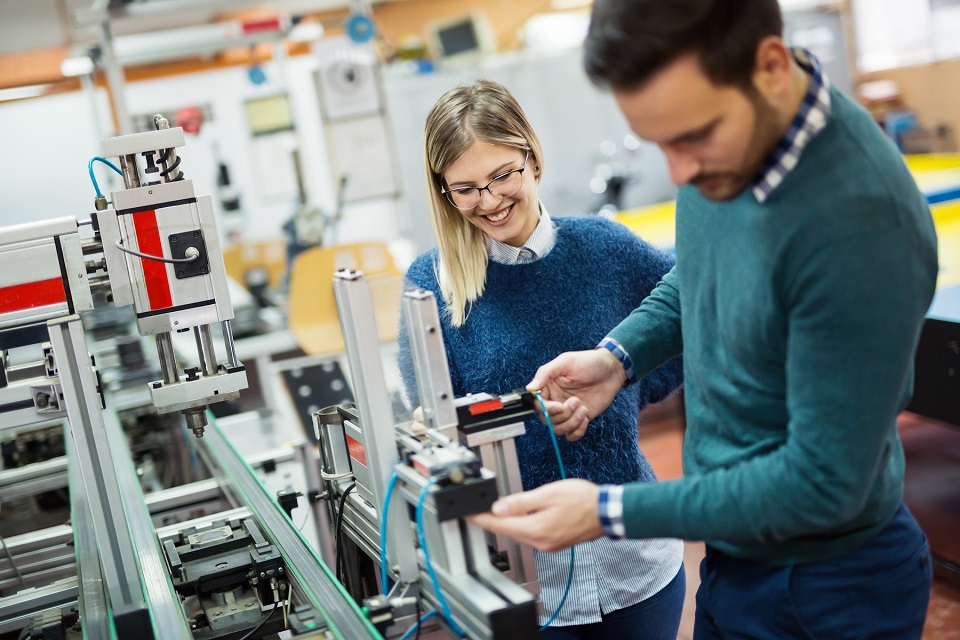GMP Manufacturing Technicians operate equipment that produces clinical products in controlled environments following strict cGMP protocols. They prepare and store products, execute batch sheets, perform quality control, and complete accurate documentation. They also collect hazardous or non-hazardous waste in correctly labeled barrels or other containers and transfer them to collection areas.
Quality Control
GMP manufacturing technicians observe and verify that processes adhere to cGMP standards for high-quality output in a quality control capacity. This includes documenting procedures, addressing deviations during internal inspections, and maintaining accurate records. They also work with their employers to develop and implement best practices. They may operate equipment that produces clinical products in a cleanroom environment. This includes autoclaves, filtration, CIP skids, and other automated process systems.
Moreover, they perform daily PMs and quality monitor responses to minimize downtime in production areas. They record their results in electronic notebooks and equipment logbooks to meet documentation best practices. Having GMP manufacturing experience can help you maximize the benefits of technology. It can ensure that all employees strictly adhere to manufacturing processes and regulations. This helps you avoid potential recalls, seizures, and fines resulting from poor product quality. In addition, it can help you reduce the amount of time spent on FDA surprise audits.
Cleanroom Operations
The role of a GMP manufacturing technician often includes work in the cleanroom. This is where the microbial contamination that might otherwise make it into final products is minimized. GMP manufacturing technicians must adhere to governing SOPs for room and equipment sanitization as part of cleanroom operations. They also monitor cleaning and sanitization cycles for accurate documentation. They perform gowning orders that vary by job requirements in Grade A/B cleanrooms, and they maintain a stock of sanitization supplies and gowning articles for timely reordering. GMP production technicians may also support investigations into out-of-specification (OOS) results and prepare samples for testing. They also work with other departments on various tasks, including product preparation, inventory management, and warehouse work. These roles often overlap with those who work in Quality Investigations and QA Support and those who do Laboratory duties. Being flexible in your career choices and developing skills useful for multiple departments is a good idea.
Discrete Manufacturing
GMP manufacturing technicians perform a range of tasks to support the production process. This includes performing quality control functions that strictly ensure production procedures are followed with internal and external protocols. They also prepare production documents, including electronic notebooks and equipment logbooks, and collaborate with process development scientists to draft pivotal documentation for development activities. Discrete manufacturing produces distinct products that can be easily separated into individual parts. This production method typically uses a bill of materials to determine the type and quantity of items needed for assembly. Examples include automobiles, furniture, and toys. A GMP manufacturing technician operates and maintains high-tech equipment in a cleanroom environment. They also follow cGMP guidelines and SOPs. In addition, they perform preventive maintenance on automation systems and track machine performance. Moreover, they perform operations for spray drying, capsule filling, and blister packaging of AAV vectors in support of early-phase human clinical trials.
Equipment Maintenance
Maintaining equipment involves ensuring it functions optimally and conducting regular inspections to ensure safety. During these activities, you will also make repairs when necessary. This enables you to reduce the risk of equipment failure and maximize productivity. You may also oversee the implementation of policies and procedures that ensure safety compliance within your company. This includes following standard operating procedures (SOPs), performing training, and recording data as required by the FDA. A GMP manufacturing technician’s job is highly regulated, as any product that doesn’t follow these regulations can pose serious health risks to consumers. These risks include poor hygiene, temperature control, cross-contamination, and a lack of quality controls. A strong knowledge of GMP is essential for this role, as you may need to conduct quality assessments and inspect products. You may also be required to report any issues. This requires a keen understanding of handling and implementing a well-designed complaint handling system.








No Comments